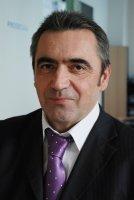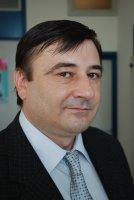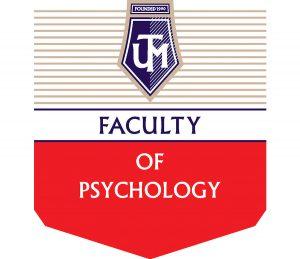DEAN

Professor Viorel Iulian TĂNASE, PhD
VICE-DEAN

Associate professor Petru CRAIOVAN, PhD
AUDIENCES
- DEAN – Professor Viorel Iulian TĂNASE, PhD : Monday 10 AM -12 PM
- VICE-DEAN – Associate professor Petru CRAIOVAN, PhD : Wednesday 8 AM – 10 AM
COUNCIL OF THE FACULTY OF PSYCHOLOGY
DEPARTMENT OF PSYCHOLOGY AND PSYCHOTHERAPY
- Professor Irina Holdevici, PhD – director
- Associate Professor Barbara Crăciun, PhD – adviser
- Lecturer Simona Reghintovschi, PhD – adviser
DEPARTMENT OF COGNITIVE SCIENCES
- Lecturer Oana Mateescu, PhD – director
- Professor Paraschiv Titi, PhD – adviser
- Lecturer Lungi Nansi Ionuț, PhD – adviser
THE COUNCIL
- Professor Viorel Iulian Tănase, PHD
- Professor Irina Holdevici, PhD
- Professor Titi Paraschiv, PhD
- Associate Professor. Barbara Crăciun, PhD
- Associate Professor Petru Craiovan, PhD
- Lecturer Oana Mateescu, PhD
- Lecturer Simona Reghintovschi, PhD
- Lecturer Carmen Răpițeanu, PhD
- Maria Ciurescu – Student
- Maria Dănescu – Student
- Mara Iulia Lupulescu – Student
THE DEAN’S SPEECH
The central objective of the Faculty of Psychology is the realization of specialists in psychology that impose an axiological system corresponding to the paradigmatic framework set up by the current technological, political and social challenges.
The current intellectual vector defined by two coordinates, the mathematical notation – an expression of the universal symbolism and the modern symbolic logic resulting from the logic of reality led to the technicalization of the thought processes, the increase of the experimental role in psychological knowledge, the quantitative statistical analysis, the creation of constructive autoinstructions after the IT & C analogy and human brain function, which is downloaded in accordance with the logic of duality and Boolean algebra.
The current intellectual vector defined by two coordinates, the mathematical notation – an expression of the universal symbolism and the modern symbolic logic resulting from the logic of reality led to the technicalization of the thought processes, the increase of the experimental role in psychological knowledge, the quantitative statistical analysis, the creation of constructive autoinstructions after the IT & C analogy and human brain function, which is downloaded in accordance with the logic of duality and Boolean algebra.
Applications of positive sciences in deciphering human rationality, with remarkable results, such as:
- Downloading neural flows according to binary code;
- Synapse description as a mechanism of suitability between output signals and excitation stimulus for the next element;
- The theory of homeostatic and adaptive regulation applicable to logical-mathematical, technical, biological, psychological and social models;
- Self-organizing and behavioral mechanisms based on symbolic logic and IT & C theory;
- The input relation (sensor organs, peripheral input devices) – output (effector organs, output peripheral equipment) is a consecutive relationship over time, involving the definition of the relationship of past and future order by the information integration organs (nervous system, central unit ) In storage and management of memory and knowledge;
- Achieving the investigative boundaries by dynamic systems theory and describing the human organism as a complex (structurally and functionally), anti-entropic, self-regenerative system with learning and self-adaptability;
They have determined profoundly identifiable scientific mutations in the psychology of the 21st century.
The subject of psychology is the study of the human body which is the most efficient of the existing systems in terms of energy and informatics, so I believe that the results of the psychological researchers will be able to be exploited in areas related to psychology (logic, cybernetics, information theory, Robotics, knowledge management, organization theory, legal cybernetics, etc.); This makes the psychologist a user of the current technology, a promoter of it as well as the source of new sciences such as cybernetics whose source is in psychology with mathematics as a tool of theoretical investigation and experimental engineering.
Graduates of our faculty use scientific results in the field of psychology and related fields by applying them in the study of the human organism, that is why we can define them as architects of the spirit in a dynamic, complex, integrated and cognoscible world. All these thoughts will be reflected in the way In which I understand to improve the structure and functionality of this faculty during the great scientific and institutional challenges.
The subject of psychology is the study of the human body which is the most efficient of the existing systems in terms of energy and informatics, so I believe that the results of the psychological researchers will be able to be exploited in areas related to psychology (logic, cybernetics, information theory, Robotics, knowledge management, organization theory, legal cybernetics, etc.); This makes the psychologist a user of the current technology, a promoter of it as well as the source of new sciences such as cybernetics whose source is in psychology with mathematics as a tool of theoretical investigation and experimental engineering.
Graduates of our faculty use scientific results in the field of psychology and related fields by applying them in the study of the human organism, that is why we can define them as architects of the spirit in a dynamic, complex, integrated and cognoscible world. All these thoughts will be reflected in the way In which I understand to improve the structure and functionality of this faculty during the great scientific and institutional challenges.
DEAN,
Professor PhD. Viorel Iulian TĂNASE
Professor PhD. Viorel Iulian TĂNASE



